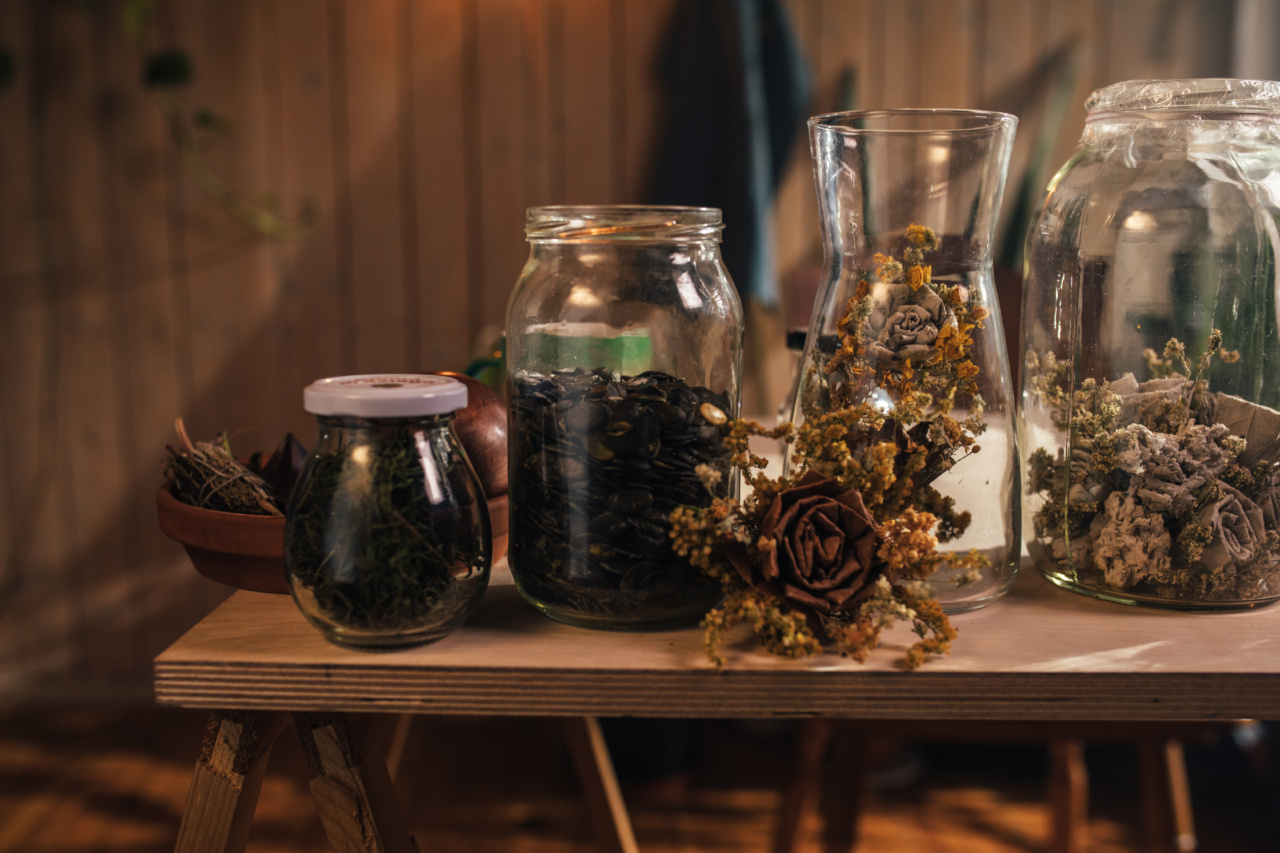When it comes to cooking with fresh herbs, nothing beats the flavor and aroma they bring to a dish. However, it can be challenging to keep them fresh for an extended period of time.
Whether you grow your own herbs or buy them from the store, proper storage is essential to maintain their quality and ensure their longevity. In this article, we will explore expert tips for storing herbs to maximize their shelf life and help you make the most of these flavorful wonders.
1. Harvesting at the Right Time
The first step to ensuring a longer shelf life for your herbs starts with harvesting them at the right time. Most herbs are at their peak flavor just before they begin to flower.
At this stage, they contain the highest concentration of essential oils, providing maximum flavor and aroma. Stay vigilant and harvest your herbs before they reach this flowering stage to capture their vibrant essence.
2. Washing and Drying Freshly Harvested Herbs
Once harvested, it is important to wash your herbs thoroughly to remove any dirt or debris. Gently rinse them with cold water and pat them dry using a clean kitchen towel or paper towels.
Make sure to handle the herbs delicately to prevent bruising or damaging their delicate leaves.
Drying freshly harvested herbs is crucial for long-term storage. There are several methods you can use:.
3. Air Drying Herbs
Air drying herbs is the easiest and most traditional method. Tie small bunches of herbs together at the stems using string or rubber bands. Hang them upside down in a dark, well-ventilated area, away from direct sunlight or heat sources.
This method usually takes one to two weeks for the herbs to completely dry out. Once dried, gently strip the leaves from the stems and store them in airtight containers.
4. Using a Dehydrator for Drying Herbs
If you want to speed up the drying process, using a food dehydrator is a great option. Spread the herbs in a single layer on the dehydrator trays and follow the manufacturer’s instructions for drying time and temperature.
Dehydrators can significantly reduce the drying time, often taking only a few hours. Once dried, store the herbs in airtight containers.
5. Freezing Herbs
Freezing is another effective method for preserving the freshness of herbs. Wash and dry your herbs thoroughly, then chop or mince them according to your preference.
Place the herbs in ice cube trays and cover them with water or oil, depending on your intended use. Once frozen, transfer the herb cubes to labeled freezer bags for easy access. This method is especially useful for herbs that are predominantly used in cooked dishes, such as cilantro and parsley.
6. Storing Fresh Herbs in the Refrigerator
If you prefer to use fresh herbs in your cooking, storing them properly in the refrigerator can extend their shelf life.
One method is to place the herbs in a glass filled with an inch or two of water, similar to how you would store a bouquet of flowers. Cover the tops loosely with a plastic bag and change the water every few days. This method works well for delicate herbs like cilantro, parsley, and basil.
For heartier herbs like thyme, rosemary, and sage, you can wrap them loosely in damp paper towels and store them in a plastic bag in the refrigerator. This helps to retain moisture while preventing the herbs from becoming too wet or suffocated.
7. Utilizing Storage Containers with Ventilation
Investing in storage containers specifically designed for herbs can help prolong their freshness. These containers often have ventilation holes or special compartments to regulate moisture.
They are particularly useful for storing freshly washed and dried herbs. Place the herbs inside the container, making sure not to overcrowd them, and store them in the refrigerator or pantry.
8. Avoiding Excess Moisture and Humidity
Excess moisture and humidity can negatively affect the shelf life of herbs. Make sure to store your herbs in a cool, dry place. Avoid placing them near the stove, sink, or dishwasher, as these areas tend to be more humid.
Moisture can cause the herbs to develop mold or turn slimy, resulting in spoiled herbs.
9. Labeling and Dating Your Stored Herbs
Properly labeling and dating your stored herbs is essential for easy identification and rotation. Use small, airtight containers or resealable bags and clearly mark them with the name of the herb and the date of storage.
This will help you keep track of their freshness and ensure you use the oldest herbs first.
10. Storing Each Herb Separately
Herbs have distinct flavors and aromas that can easily blend and affect one another if stored together. To maintain the integrity of each herb, store them separately.
You can use small, airtight containers or resealable bags to prevent cross-contamination.
By following these expert tips, you can store your herbs properly and extend their shelf life, allowing you to enjoy their fresh flavors and aromas for longer periods.
Whether you decide to dry, freeze, or refrigerate them, the key is to find a method that suits your needs and preserves the essence of these culinary treasures.






























